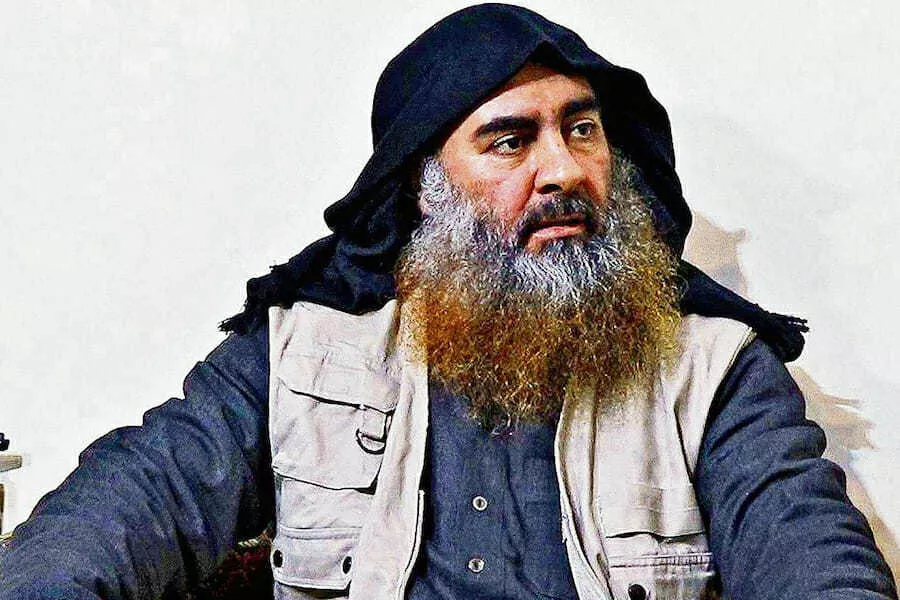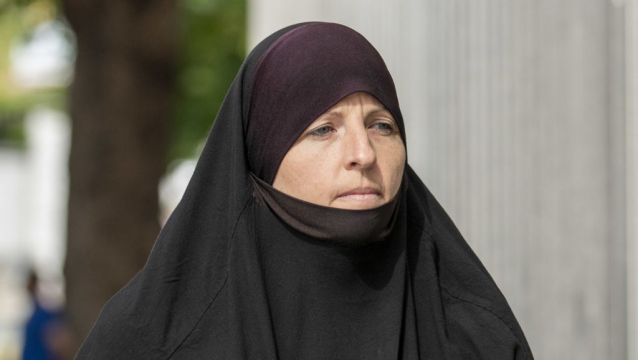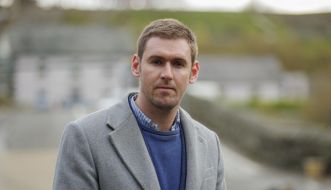Lawyers for former soldier Lisa Smith, who travelled to Syria to join Isis in 2014, have asked that before imposing sentence, the Special Criminal Court should consider her young child and the "appalling" conditions they suffered while in Syria.
Michael O'Higgins SC, for Smith, asked the court not to send his client to prison. Her referred to four psychological reports that found her to be "damaged" and "vulnerable" and he said she became attracted to the Islamic State due to her "very limited resources and significant burdens that other people from her peer group would not have had."
He said that Ms Smith already served a custodial sentence in Syria when she was held in the Al-Hawl and Ain Issa camps while she waited to be sent home to Ireland. He referred to evidence that members of Isis staying in those camps would impose cruel punishments including murder on anyone they deemed to have committed an offence.
Camp conditions
Mr O'Higgins said: "The conditions in that camp were absolutely appalling and must have been extremely frightening for anybody, particularly a mother with a small child." He also asked the court to consider that Ms Smith has lived with a 13-hour daily curfew as part of her bail conditions since 2019.
Combining the time she spent in Syrian camps and under curfew, counsel said she has already served about four years.
The maximum sentence for the offence of membership of a terrorist organisation is eight years. Mr O'Higgins said Abu Bakr al-Baghdadi, the terrorist leader of Isis, would therefore serve only eight years on conviction for the same offence.

Military operations
There is, he said, "maximum daylight" between al-Baghdadi and Ms Smith whose offending the court has already accepted is at the lower end of the scale. There is no suggestion that Ms Smith engaged in military operations while in Syria and she has stated that she spent most of her time at home cooking and cleaning for her abusive husband.
Mr O'Higgins asked the court to consider imposing a fully suspended sentence.
Mr Justice Tony Hunt, presiding at the three-judge, non-jury court, adjourned sentencing until July 22. He allowed Ms Smith to remain on bail but said "no false comfort" should be taken from that. He said the court has a lot to consider, and the case is a "novel" one.
Conviction
Smith (40) from Dundalk, Co Louth had pleaded not guilty to membership of an unlawful terrorist group, Islamic State, between October 28th, 2015 and December 1st, 2019.
The mum-of-one was convicted of Isis membership following a trial at the three-judge, non-jury Special Criminal Court earlier this year. The court rejected her claim that she had gone to the Islamic State simply out of a sense of religious obligation and for the innocent purpose of living under Sharia law and raising a family in a Muslim state.
Caliphate
In several garda interviews Smith claimed she believed she had a religious obligation to travel to Isis territory when then terrorist leader Abu-Bakr al-Baghdadi called on all Muslims to join his caliphate in Syria and Iraq.
She said that she believed she would burn for eternity in the fires of hell if she failed to live up to this religious obligation.
In the judgment delivered in May, Mr Justice Hunt noted that religion is "irrelevant to membership of Isis" as criminal activity cannot be justified by religious obligation. He said that a person would not gain immunity for arson, assault or murder because he believed he had a religious obligation to persecute witches.
Mr Justice Hunt said the prosecution had established beyond reasonable doubt that Smith's "eyes were wide open" when she travelled to Syria and pledged allegiance to the organisation led by al-Baghdadi.
He said her reasons for going to Syria were "grounded in allegiance to or agreement with the views espoused by Abu Bakr al-Baghdadi."
Allegiance
He said there was no "benign" explanation for her travel and no alternative Islamic State that she could have been travelling to. He rejected claims that she was naive or that she was unaware of what Isis was doing and said she "knew full well she was not simply adhering to life under Sharia law".
The court heard that before travelling Smith watched videos of Isis atrocities including the burning alive of a Jordanian pilot and footage of men in cages being drowned or fired at with rockets.
Her communications with other jihadis about those videos showed that her "eyes were wide open to the situation in the land to which she fervently wished to return," Mr Justice Hunt said.
Her views, the court said, were grounded on allegiance to Isis and the views espoused by Al-Baghdadi "and his ilk" and not in any valid religious call.
The court found Smith not guilty of a second charge of funding terrorism, saying that it is reasonably possible that she sent €800 to Isis fighter and propagandist John Georgelas in May 2015 for his personal use or for "humanitarian reasons", after he had been injured during fighting in Syria.
Psychological reports
At Monday's sentence hearing, Mr O'Higgins relied on psychological reports by "eminent" psychologists who had interviewed Ms Smith in recent years. He said that she has been living under significant restrictions since she arrived back in Ireland in December 2019 and suffers from paranoia arising out of a sense that people are staring at her and that she is being judged for being a Muslim. She only leaves her home to purchase groceries, he said.
As she entered adulthood Ms Smith was in the "midst of a mental health crisis", he said, due to the "intensity of her home life." She had witnessed "destructive behaviour" growing up and had lost her faith in religion. Aged 19, she joined the army where she found a sense of security after initially finding the induction overwhelming. Mr O'Higgins said the psychological profiles showed Smith to be "an extremely vulnerable person but accompanying that is a great level of stoicism in dealing with whatever hand she is dealt."
She is attracted to bad relationships, something that Mr O'Higgins said has been attributed to her upbringing. In 2008, aged 26, she suffered a "psychological crisis" and became distressed, tearful and expressed suicidal ideations. She spoke to a priest who told her to rekindle her relationship with god. She was first introduced to Islam during a trip to Tunisia. She got involved in online debates about Christianity and Islam and linked up with a mosque in Dundalk where she claims to have learned about conspiracy theories regarding Islam and the West. She came to believe in God and "the day of judgment" and became concerned about going into "hell fire".
During the trial the court heard that she first visited Syria in 2013 and married a Tunisian member of a group linked to Al-Qaeda. She returned to Syria in 2014 and divorced her husband when he refused to come to Syria and swear an oath of allegiance to al-Baghdadi.
She then married a Pakistani British Muslim who repeatedly beat and abused her sometimes leaving her with black eyes and damage to her nose. He would kick and punch her and sometimes drag her by the hair while hitting her. She suffered psychological abuse, coercion and threats at his hands, Mr O'Higgins said.
Counsel said it is a "testament to her nature" that Ms Smith is still able to have some "lingering affection" for her husband. She said that at times he was "the best in the world" in how he treated her and their daughter.
Mr O'Higgins said: "She is always capable of seeing good in people, even in those who treat her with the level of brutality that this person treated her with."

Her husband is presumed to have died fighting for Isis in Hajin in Syria.
During her time in Al-Hawl and Ain Issa, Mr O'Higgins said his client shared a tent with a German woman. There were extremists in the camp who "engaged in vicious acts" including burning people's tents while they were inside. Ms Smith had to pretend she knew Arabic and would stay inside her tent. The area was surrounded by guards and the prisoners were locked in. At night dogs patrolled the area and one girl who was caught trying to escape was beaten.
Ms Smith now displays "many features of post-traumatic stress disorder" while her "bright moments are with her daughter and through prayer". Dr Speckhard also interviewed Smith several times including while she was in Ain Issa. She said that Smith was "honest and straightforward" and brave for speaking to her despite the potentially dangerous consequences of cooperation within the camp. Dr Speckhard noted that Smith, unlike those who had fought for Isis, denounced the group's actions and Dr Speckhard found evidence that she was sincere in her renunciation.
Mr Justice Hunt asked if the doctor had been shown the social media messages between Smith and other jihadis in which she discussed Isis atrocities before travelling to Syria. Mr O'Higgins said she had been given a "voluminous brief" of the background to the case. Mr O'Higgins also asked the court to consider a further report that looks at the effect a custodial sentence would have on Smith's child.







